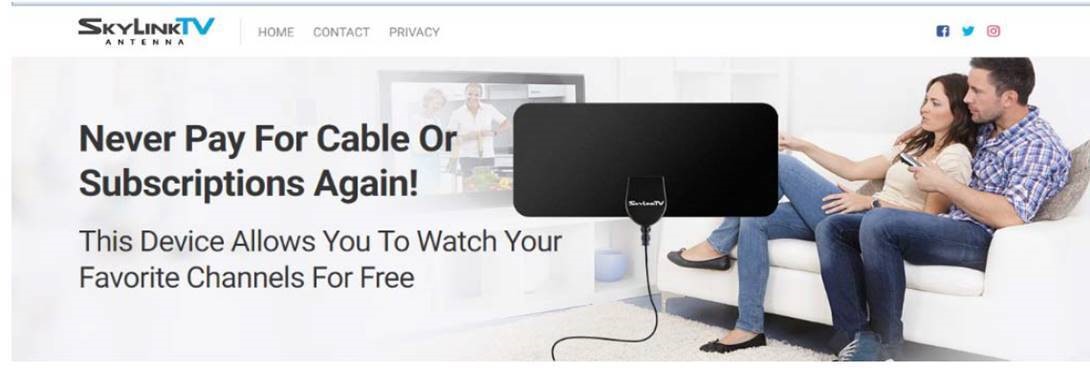A New York-based company and its CEO have agreed to settle Federal Trade Commission charges that they sold hundreds of thousands of indoor TV antennas and signal amplifiers to consumers using deceptive claims that the products would let users cancel their cable service and still receive all of their favorite channels for free.

“The defendants used every trick in the book to sell their antennas and amplifiers to people, including older adults, who wanted to save money on cable and satellite TV channels,” said Daniel Kaufman, Acting Director of the FTC’s Bureau of Consumer Protection. “People should be able to trust the claims companies make, not discover after buying that they were told lies.”
According to the FTC’s complaint, Wellco, Inc. and its owner and CEO, George M. Moscone violated the FTC Act by making deceptive performance claims for their over-the-air television antennas and related signal amplifiers, using deceptive consumer endorsements, and misrepresenting that some of their web pages were objective news reports about the antennas.
Starting in 2017, the defendants marketed and sold indoor TV antennas and amplifiers to consumers online under the TV Scout, SkyWire, SkyLink, and Tilt TV brand names. They sold more than 800,000 antennas and more than 272,000 amplifiers.
The FTC alleges the defendants’ websites made a range of deceptive claims for their antennas, including that: 1) users can stop paying for cable or satellite TV subscriptions and still receive all of their favorite TV channels; 2) a substantial portion of users receive 100+ premium channels in HD; 3) they enable consumers to receive more channels than most other TV antennas on the market; and 4) they were the #1 rated indoor HDTV antennas in America. The defendants also deceptively claimed that their amplifiers substantially increase the number of stations received with their antennas and that, by using both their antennas and amplifiers, consumers receive HBO and AMC.
In addition, the FTC alleges that the defendants fabricated testimonials, copying them from competitors’ antenna ads. The FTC also alleges the defendants deceptively used web pages that appeared to reproduce objective news reports and misrepresented that objective news reporters had performed independent tests demonstrating the effectiveness of their antennas. The company also advertised in Spanish.
The proposed consent order settling the FTC’s complaint would prohibit the defendants from making claims about: 1) any product’s rating, ranking or superiority to other products; 2) the channels users will receive; or 3) any material aspect of a product’s performance, efficacy, or central characteristics, unless the claims are true and substantiated. The order would also prohibit the defendants from making any misrepresentation through a product endorsement, that a website is an objective news report, or that independent tests demonstrate the effectiveness of a product.
The proposed order imposes a $31.82 million judgment against the defendants. The judgment will be suspended upon the defendants’ payment of $650,000 to the Commission, based on their inability to pay the full judgment.
The Commission vote approving the complaint and proposed settlement order was 4-0. The FTC filed the complaint and proposed order in the U.S. District Court for the Southern District of New York.
NOTE: The Commission files a complaint when it has “reason to believe” that the named defendants are violating or are about to violate the law and it appears to the Commission that a proceeding is in the public interest. Stipulated final injunctions/orders have the force of law when approved and signed by the District Court judge.
The Federal Trade Commission works to promote competition and protect and educate consumers. The FTC will never demand money, make threats, tell you to transfer money, or promise you a prize. Learn more about consumer topics at consumer.ftc.gov, or report fraud, scams, and bad business practices at ReportFraud.ftc.gov. Follow the FTC on social media, read consumer alerts and the business blog, and sign up to get the latest FTC news and alerts.
